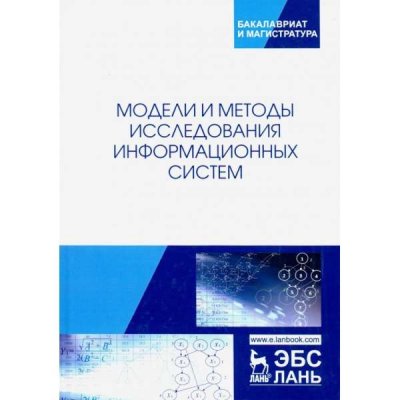Models and methods of information systems research
A systematic presentation of data and knowledge representation models is given, including classical database models and NoSQL database models. Classical models of knowledge representation (semantic networks, frames, clear and fuzzy production systems, logical models), as well as modern models: descriptive logic and ontologies, convolutional neural networks are considered. The methodology of object analysis and design of information systems, as well as the means of the unified modeling language UML are described. Original results on modeling of information systems are presented: models of knowledge representation using descriptive logics and ontologies, models for calculating the operational efficiency of cloud systems based on multi-channel "cooling" service systems. Models of the growth of the reliability of IS software based on phase-type distributions, including taking into account the probabilities of error detection, information retrieval models based on latent semantic analysis, as well as models of parallel programs and methods of parallel computing planning are considered. It is recommended to teachers and researchers, as well as undergraduates and postgraduates in the study and research of information systems and technologies.
No reviews found




































